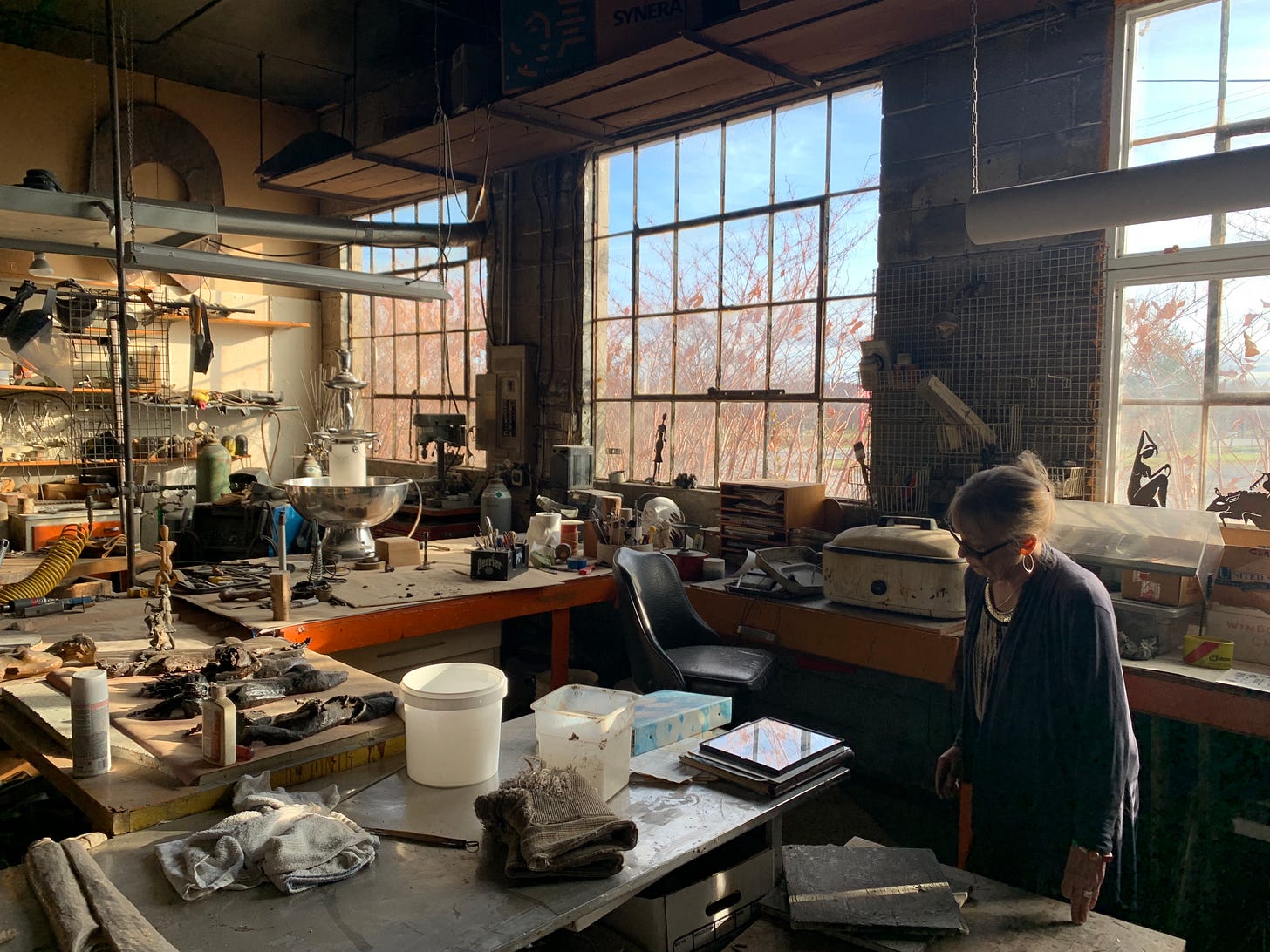Meditation in an Art Studio
The Things I'm Looking Along This Year

As I read this meditation in a toolshed this morning, I was transported back to my grandmother’s art studio in Traverse City, MI, the place where my imagination was first formed.
Here are some of the things on my mind as we begin 2023:
It is necessary to not only look at things, but also along them. This is the only way to understand the true nature of the world that we live in—and ourselves. The beam of light shining through a crack in the toolshed is inviting us to look along it, not at it. Where might be that light be shining in through a crack in my life? What do I need to look along?
The modern world trains and incentivizes us to think programmatically, like machines, rather than spiritually, like humans—like people with an illative sense of reality. We only look at, never through—”objectively”, not sacramentally. This closes the mind to transcendence.
My disillusionment with many podcasts and much non-fiction is partly due to this: they have become overly-intellectualized enterprises that only look at, and rarely along. Sometimes I do sense that (in the case of a podcast) there are two people standing shoulder-to-shoulder looking together at some great truth—but there is something critically unnatural, artificial, and performative about the medium as a whole holding it back. There has hardly been any underlying innovation at all in the past few years—just more content.
The medium is the message, and formal cause—that is, the form through which power moves and communication travels—is more important than content. Everyone feels the effects of monetary inflation; few seem to have felt the inflation of content as viscerally. The thought of Marshall McLuhan will see a resurgence this decade as we grapple with new structures and effects of media. Paradoxically, the effects precede causes.
Throughout history, human cultures have had important rites of passage that help people pass from one state in life to the next: birth, puberty, various degrees of maturation, marriage, children, even death. Today these old rites are collapsing. People are turning inward and clinging to the security of their tribe in an uncertain and complex world. This is causing hyper-partisanship in politics and a growing distrust of anyone outside of one’s group—but also a failure to grow, evolve, and adapt to changing circumstances. We need new, and better, rites of passage to help us live well (and grow) in a world like ours.
Audience Capture (the fact that Andrew Tate, for instance, has managed to amass millions of followers and feed them more of the red meat they are looking for) is not just an algorithmic problem but an economic and even more fundamentally a spiritual problem. The cat is out of the bag, the genie is out of the bottle—and there’s no putting it back in. Now, we have a decision to make about how we spend our time and attention. Even if people do make a healthy decision about how they want to spend it, they will need help doing it. In the next 10-20 years, the amount of money that people invest in gym memberships and personal trainers will pale in comparison to what they invest in digital boundaries and well-being.



